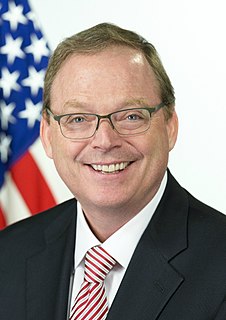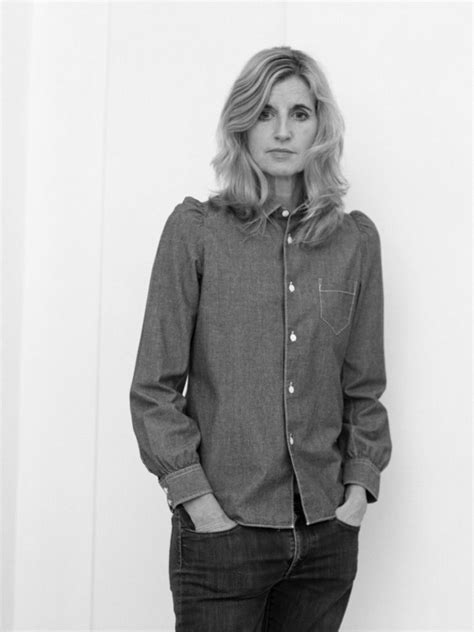A Quote by Bill Gates
The challenge here is to design a system where market incentives, including profits and recognition, drive those principles to do more for the poor. I like to call this idea creative capitalism, an approach where governments, businesses, and nonprofits work together to stretch the reach of market forces so that more people can make a profit, or gain recognition, doing work that eases the world's inequities.
Quote Topics
Related Quotes
We can make market forces work better for the poor if we can develop a more creative capitalism-if we can stretch the reach of market forces so that more people can make a profit, or at least make a living, serving people who are suffering from the worst inequities. ... You have more than we had; you must start sooner, and carry on longer.
Recognition has brought me more work, because your name suddenly comes to mind when some directors are trying to cast a character. And my stage work has specifically enabled people to have faith that I can handle a role, even when it's not specifically written for an African-American. So, I'd have to say that recognition brings work. A successful movie brings more work, and that been the biggest blessing.
No matter who you are, you always want more recognition, but I'm grateful for what I do have, and I feel like I've earned it... So I'm going to continue to put in that hard work, and build relationships with people, and continue to grow as an artist... So hopefully from that, I'll be able to get more recognition.
I believe in market economics. But to paraphrase Churchill - who said this about democracy and political regimes - a market economy might be the worst economic regime available, apart from the alternatives. I believe that people react to incentives, that incentives matter, and that prices reflect the way things should be allocated. But I also believe that market economies sometimes have market failures, and when these occur, there's a role for prudential - not excessive - regulation of the financial system.
The great virtue of free enterprise is that it forces existing businesses to meet the test of the market continuously, to produce products that meet consumer demands at lowest cost, or else be driven from the market. It is a profit-and-loss system. Naturally, existing businesses generally prefer to keep out competitors in other ways. That is why the business community, despite its rhetoric, has so often been a major enemy of truly free enterprise.
Let’s begin with capitalism, a word that has gone largely out of fashion. The approved reference now is to the market system. This shift minimizes - indeed, deletes - the role of wealth in the economic and social system. And it sheds the adverse connotation going back to Marx. Instead of the owners of capital or their attendants in control, we have the admirably impersonal role of market forces. It would be hard to think of a change in terminology more in the interest of those to whom money accords power. They have now a functional anonymity.
Socialized medicine allows a nation to exclude a U.S. product from its market if the U.S. firm does not make generous enough price concessions. Accordingly, what has developed is a system within which U.S. firms make large profits on new drugs in the U.S. market, but very low profits on sales everywhere else.
If you go back to Adam Smith, you find the idea that markets and market forces operate as an invisible hand. This is the traditional laissez-faire market idea. But today, when economics is increasingly defined as the science of incentive, it becomes clear that the use of incentives involves quite active intervention, either by an economist or a policy maker, in using financial inducements to motivate behavior. In fact, so much though that we now almost take for granted that incentives are central to the subject of economics.
The scientific world, the materialistic world, the world of commerce, the world of business, the world of individualism, the world of capitalism, world of communism - all these worlds are the old story now. Where we think we exploit nature, we exploit people. Market rules, profit rules, money rules. We work for name, fame, power, money, profit. That's the old story.
If America is the land of opportunity, a country where perseverance and hard work is rewarded by recognition, then an illegal harbors the opposite ambitions. His greatest reward us anonymity, invisibility. Aided and abetted by market forces and the laws of supply and demand, he hones his skill to stand up but make sure he's never counted.


































